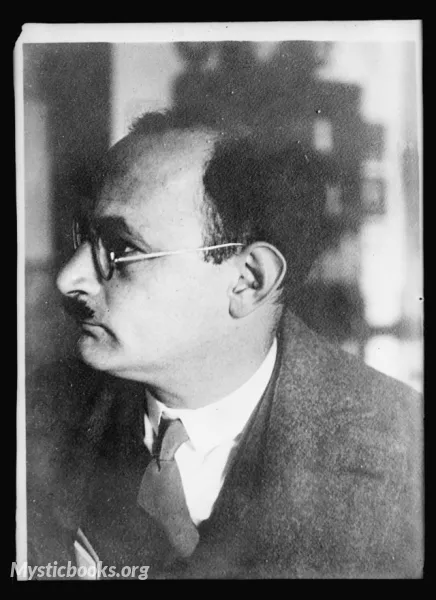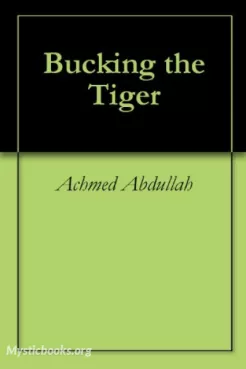
Timeline
Title
Country/Nationality
Achmed Abdullah
Achmed Abdullah (1881-1945) was an American short story author, novelist, and screenwriter who was known for his works of mystery, crime, and adventure set in exotic locales from New York's Chinatown to India and Tibet.
Abdullah was born in Yalta, in the Crimea, of mixed Russian-Afghan ancestry. He claimed to be a descendant of the Russian imperial family, but this remained unconfirmed. His father, Grand Duke Nicholas Romanoff, was a Russian-Orthodox, cousin to the last Tsar of Russia. Abdullah's mother, Princess Nourmahal Durani, was a Moslem. After she divorced his father, Abdullah lived in Afghanistan. He was educated in Indian School, Darjeling, and College Louis le Grant, France. He then moved to England, where attended Oxford. He also studied at the University of Paris.
Abdullah began his writing career as a poet with Chansons Couleur Puce (1900), which was privately published. His study on Bantu dialects (1902) was also privately published. In 1900, Abdullah entered the British army, where he spent many years as a gentleman officer. He claimed to have served in Afghanistan, Tibet in 1903–04 with the Younghusband Expedition. He was also deployed in Africa, China and also with the British-Indian army in India. In addition, he was also a colonel in a cavalry regiment for one year in the Turkish army as a British spy.
Abdullah's first published story was Strength of the Little Thin Thread (1912), followed by The Red Stain (1915). He wrote pulp crime, mystery, and adventure stories with multicultural themes, including a progressive Siamese drama, Chang: A Drama of the Wilderness (1927), a film nominated for an Academy Award in 1927. His best-known work is the novelization of the famous silent film, The Thief of Bagdad (1924).
Abdullah's philosophy was based on his belief in the universality of human experience. He believed that people from all cultures could understand each other, and that stories could help to bridge cultural divides. He was also a strong advocate for social justice, and his stories often explored themes of race, class, and gender inequality.
Abdullah died in New York City in 1945. He is remembered as one of the most important writers of mystery, crime, and adventure fiction in the early 20th century. His work has been praised for its originality, its suspenseful plots, and its sensitive portrayal of cultural diversity.
Here are some of the principles that guided Abdullah's writing:
- Universality: Abdullah believed that stories should be accessible to people from all cultures. He avoided using jargon or stereotypes, and he often set his stories in exotic locales to show that people from all over the world shared the same basic human experiences.
- Social justice: Abdullah was a strong advocate for social justice, and his stories often explored themes of race, class, and gender inequality. He believed that stories could help to raise awareness of these issues and to promote social change.
- Cultural sensitivity: Abdullah was a careful observer of different cultures, and he often incorporated elements of these cultures into his stories. He believed that it was important to be respectful of other cultures, and he avoided using stereotypes or making generalizations.
Abdullah's work has had a lasting impact on mystery, crime, and adventure fiction. He is considered one of the pioneers of the genre, and his work has influenced many other writers.
He is remembered for his original stories, his suspenseful plots, and his sensitive portrayal of cultural diversity. His work continues to be read and enjoyed by readers today.
Books by Achmed Abdullah

Bucking the Tiger
In the smoky underworld of 1920s New York City, where fortunes are won and lost with the turn of a card, "Bucking the Tiger" by Achmed Abdullah transports readers into a thrilling and treacherous world of high-stakes gambling, deception, and unrelent...

Ten-foot Chain
This anthology explores the complexities of love and human connection through the lens of a unique scenario. Four prominent authors offer their diverse perspectives on the emotional and psychological impact of being physically tethered to another per...